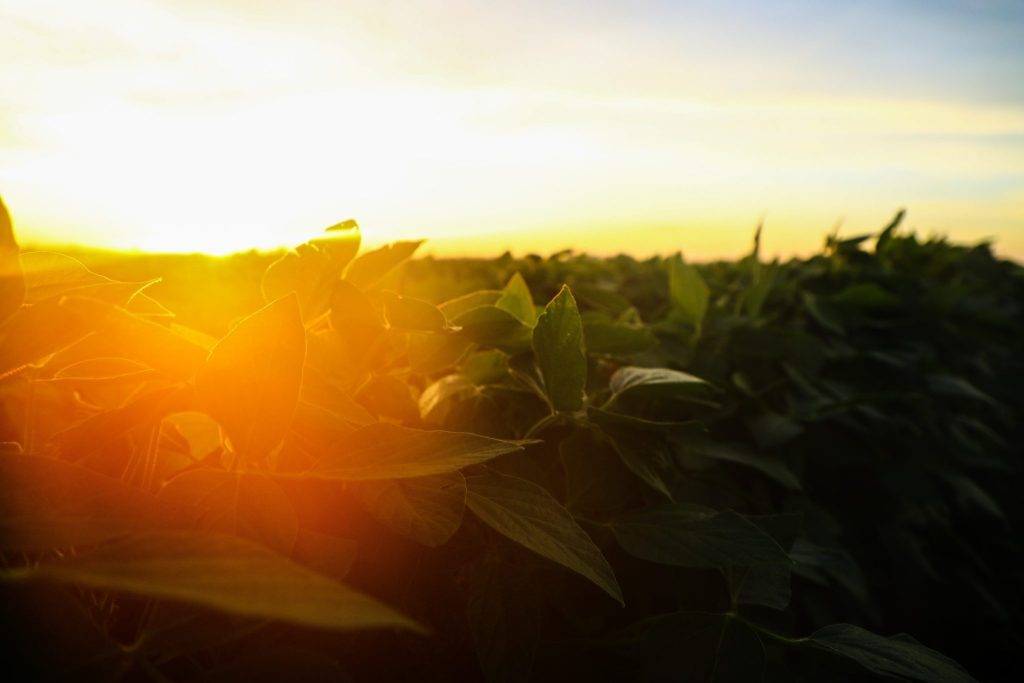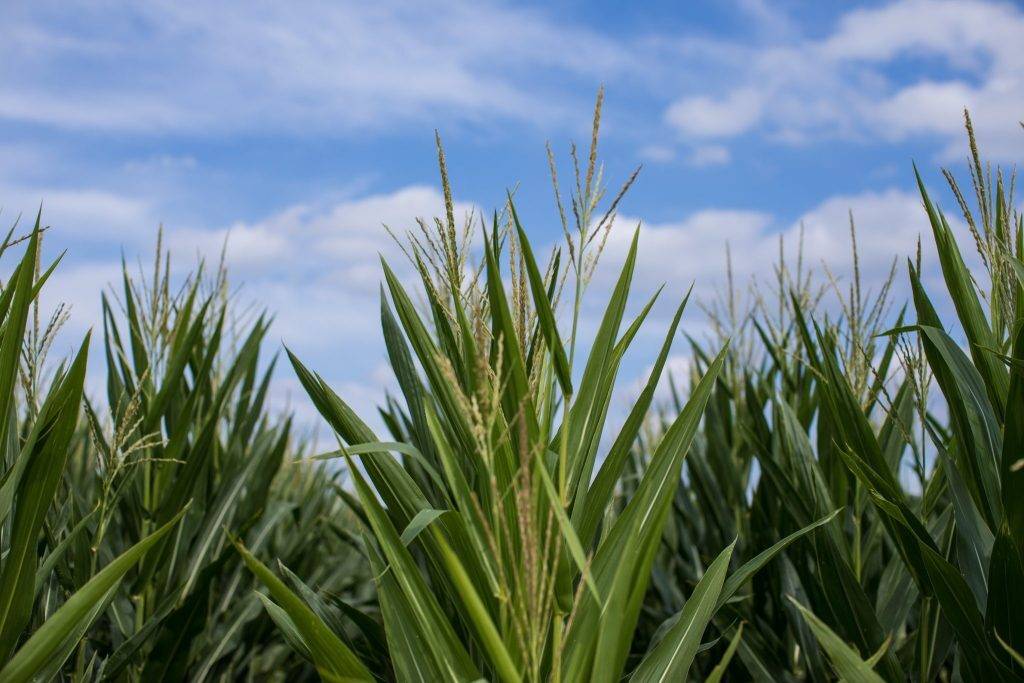Written by Cassie Godwin

Farmers are self-reliant, they pick themselves up by their own bootstraps, and they don’t complain.
These are a few of the qualities that make farmers excellent at caring for the land and feeding the world. But these same qualities also make it difficult for farmers and ranchers to ask for help with mental health struggles.
FACING STRUGGLES
A 2020 study conducted by the Centers for Disease Control and Prevention found that the agriculture, forestry, fishing, and hunting industry ranked fourth in suicide rates. While farming is often found to be one of the most rewarding and vital jobs in society, it is also one of the most difficult and isolated. Much of the outcome of growing crops and raising livestock is in the hands of external forces such as weather, commodity prices, legislation, supply chain disruptions and disease. All these factors, and more, can take a toll on the mental, physical, emotional, and financial well-being of farmers and ranchers. These uncontrollable causes coupled with the isolation of many rural communities, result in a population who may be struggling mentally, while lacking necessary resources and wrestling with the stigma of needing to seek help.
Mallory Meek is a former Kansas State University Agriculture Extension Agent who was pivotal in establishing localized mental health resources and assistance to rural Kansans. “I got involved in the outreach for agriculture mental health after flooding, a tornado, and a drop in commodity prices hit the state in 2019,” Meek explains. “I noticed an emotional shift in many of my farm families, but resources for our farming community were scarce.”
Scarce resources are a common obstacle for rural America. Basic necessities such as groceries, home supplies, and services often require the minimum of an hour drive. If a rural resident is needing specialized healthcare, that person can be looking at spending a significant amount of time just driving to and from the appropriate facility, not to mention the financial strain that often play a leading role when healthcare is involved.
“Those familiar with rural farming towns, know that not all resources are easily accessible,” Meek says. “There might only be one stop light, one grocery store, and one school for the entire county. Limited resources do not stop there. Rural mental health providers are also few and far between, usually booked out months in advance, and might practice hours away.”
Geography alone is a major barrier when seeking mental health resources, but for many the biggest obstacle is overcoming the shame many farmers and ranchers feel when they struggle with their mental wellbeing. Whether an individual’s mental health issues are being battled privately or publicly, embarrassment and shame often weigh on the minds of those struggling. “Farmers are the toughest and most selfless people, but often find it hard to ask for help regarding their mental wellbeing,” Meek explains. “In small towns there are fewer resources available. In a town where everyone knows everyone, the fear of being seen walking into a mental health facility by a community member often deters those from getting help. With increased understanding and efforts toward removing the negative stigma surrounding mental health in farming towns, we can hopefully remove the fear of asking for help.”
PROVIDING HELP
The first step a person must take in order to get the necessary help is realizing and accepting that they need help. Sometimes this realization comes from self-evaluation, while other times it is revealed by close family members and friends.
The website for the American Farm Bureau Federation Farm State of Mind campaign explains that warning signs for mental health struggles often show as a change in routines or social activities, an increase in farm accidents, signs of stress in children, a decline in the care of domestic animals, a decline in appearance of the farmstead, an increase in illness or other chronic conditions, and a decreased interest in activities or events.
Starting a conversation about mental wellbeing can feel daunting but talking through struggles is a major step in seeking help. Farm State of Mind’s online resources provide practical tips on how to start a conversation.
“If you notice someone showing signs of a mental health problem or someone is reaching out to you for help, offer support by taking the time to communicate and be there for your friend or family member,” Meek explains. “Express your concern and support for their wellbeing. It is okay to ask the individual if they are experiencing thoughts of suicide. Questioning the individual to better understand their emotions and what they are going through can help you persuade them to go with you to seek professional help. If your community has a mental health facility, connect with those providers. If not, there are free resources that can be accessed either online or by phone to help you become connected with a trained mental health provider.”
Possibly the most important reassurance that can be provided to someone going through a period of struggle is that they are not alone, farm stress affects everyone, and there is no shame in seeking professional help.
“A common myth is that if you talk about mental health around someone who might be struggling, it will push them farther into isolation. That is not true. Being able to share our experiences and feelings is important for removing the negative stigma surrounding mental wellness. At times we will all struggle, so it is important to know who is in our circle to help lift us up and assist us in finding the help needed.”
The American Farm Bureau Federation began their work in the mental health space in 2018 when they participated in the first National Rural Stress Summit at the University of Georgia. This laid the groundwork for their involvement and eventual management of the Farm State of Mind campaign.
“We [American Farm Bureau Federation] inherited the Farm State of Mind campaign from Bayer,” says Ray Atkinson, AFBF Director of Communications. “They [Bayer] transitioned the Farm State of Mind program to us in March 2020. Bayer decided Farm Bureau would be a good partner to take and run the program because of our existing network of advocates all across the country.”
Farm State of Mind is an online platform provides practical tips, educational information, trainings, and resources that can be easily accessed for anyone in need. A highlight of the website is its Farm State of Mind Resource Directory. The directory launched in May 2021 and currently contains more than 200 resources.
“This is a nationwide directory of resources available in every single state for mental health and stress,” Atkinson explains. “We [American Farm Bureau Federation] looked around and there wasn’t anything like that where you can look in each state to find different state extension and behavioral mental health sites. Since we found there wasn’t a central location for that information, we built it.”
Atkinson states that whether someone is looking for a hotline, counseling, or published information, that can all be found on farmstateofmind.org. The website also links to the AFBF Farm Town Strong campaign that launched in 2017 in partnership with National Farmers Union. This campaign focused on the opioid epidemic in rural America.
American Farm Bureau Federation, Farm Credit and National Farmers Union partnered on a program to train individuals who interact with farmers and ranchers. This program, titled Rural Resilience Training, provides trainees with the skills to understand sources of stress, identify effective communication strategies, reduce stigma related to mental health and learn the warning signs of stress and suicide.
“Farm Bureau’s initial goals were to provide resource-based information to help farm families cope with stress and mental health challenges,” Atkinson says. “That is what we’re going to keep doing. We want to encourage people to know that it’s okay to not to be okay. Not only is it okay to not be okay, but it’s important to ask for help when you need it. People are not alone in their struggles. People want to help. Farmers want to help farmers.”
GROWING HOPE
In recent years, the conversation around the topic of mental wellbeing has gone from being a hush-hush discussion to being championed through national platforms and forums. There is still work to be done, and there always will be, but positive progress is being made.
Recognizing the vulnerability among those working in agriculture, the agricultural departments of many states have partnered with mental health awareness programs, extension, and universities, investing in both research and resources regarding rural mental health. Resulting in almost every state having rural-focused and ag-based resources created to alleviate or manage farm stress and receive the needed help.
According to the Alabama Daily News the Alabama Department of Agriculture and Industries and the Alabama Department of Mental Health are providing mental health services to the state’s residents. The University of Maryland Extension offers a Farm Stress Management program.
The Oklahoma Department of Agriculture, Food and Forestry has partnered with Oklahoma State University Center for Health Services and OSU extension to study mental health conditions of farmers and ranchers in the state. This initiative will also develop ways to assist rural Oklahomans.
The Pennsylvania Department of Agriculture is funded by a USDA Farm and Ranch Stress Assistance Network (FRSAN) Grant, The Center for Dairy Excellence, Center for Beef Excellence, Center for Poultry & Livestock, PA Beef Producers Working Group, and Penn State Extension Dairy and Livestock groups partnered in the spring of 2022 to host six free mental health workshops located throughout the state.
These programs and more provide producers the opportunity to learn the importance of mental wellbeing and equip them with the tools to take care of themselves. Just as important, it keeps the conversation of rural mental health at the forefront of people’s minds.
“With increased discussions about mental wellness, we can continue to make positive social changes surrounding the topic,” Meek says.
American Farm Bureau Federation wants to address stigma because stigma is one of the biggest, if not the biggest barrier to treatment.
“Farm Bureau is committed to addressing stigma associated with seeking help,” Atkinson explains. “In our most recent research, one thing we measured was to see if there has been a change in stigma. We found that it is getting better. We saw that some people are more comfortable, particularly when talking with their doctors, about mental health, and that’s huge.”
The findings of the most recent American Farm Bureau Federation study were published in December 2021. The study was conducted by Morning Consult and poll results were compared with previous surveys AFBF conducted in 2019 and 2020 on the impacts of the rural economy and the impacts of the COVID-19 pandemic on farmer mental health.
Some of the study’s other key factors revealed that “Rural adults say stigma and availability of treatment are less of a barrier to seeking help or treatment for a mental health condition than in prior years, but these are still barriers.”
Additionally, the study showed that “Farmers/farm workers are more comfortable talking to friends, family and their doctors about stress and mental health than they were in 2019. Four in five rural adults (83%) and 92% of farmers/farm workers say they would be comfortable talking about solutions with a friend or family member dealing with stress or a mental health condition. Nearly half of rural adults (48%) and 2 in 5 farmers/farm workers (44%) say they are more comfortable talking to their doctor about personal experiences with stress and mental health compared to a year ago. And the percentage of farmers/farm workers who say they would be comfortable talking to friends and family members has increased 22% since April 2019.”
Positive progress is being made, but the mental-health struggle will always be a constant within the agriculture community. However, the agriculture community is a community that rallies together and takes care of each other. Agriculture is an extremely vulnerable, yet incredibly strong industry. Farmers, ranchers, and rural residents are using available resources, and creating more, to establish encouraging change and ensuring that hope grows in rural America.
HOW TO LEARN MORE
Dial 988
The previously known National Suicide Prevention Lifeline has rebranded to now be known as Suicide and Crisis Lifeline. Anyone in the United States who dials 988 will be directed to someone in their state who is a trained mental health first responder. This lifeline is for ALL mental health crisis and not limited to just suicide.
Crisis Text Line
Text HOME to 741741
American Farm Bureau Federation Farm State of Mind
www.farmstateofmind.org
Farm Stress: You Are Not Alone
https://www.youtube.com/watch?v=2SDszgQciiA
Mental Health First Aid Training
www.mentalhealthfirstaid.org/take-a-course/find-a-course/
The Do More Agriculture Foundation
www.domore.ag


